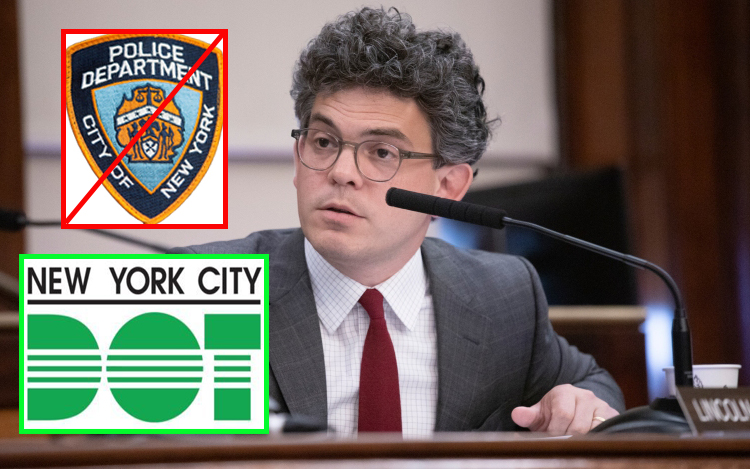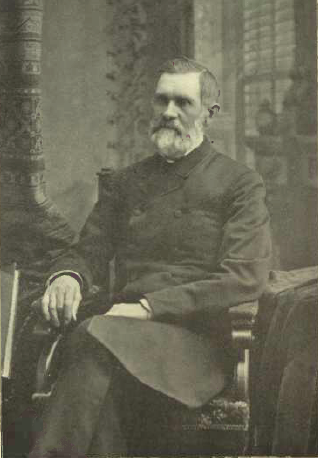Richard White
Senior Member
Why can't we deputize average citizens to enforce this? Take a video and record the plate.
That would end badly. Very badly.
Why can't we deputize average citizens to enforce this? Take a video and record the plate.
Okay. Ubiquitous CCTV with automated enforcement instead.I hope that's a joke. Giving the general public carte blanche to engage in vigilantism has never been a good idea.
Why can't we deputize average citizens to enforce this? Take a video and record the plate.

 nyc.streetsblog.org
nyc.streetsblog.org
I hope that's a joke. Giving the general public carte blanche to engage in vigilantism has never been a good idea.
Could someone (the federal government?) examine Ontario's books?Queen’s Park is hiring auditors to examine city finances in Toronto, Mississauga, Brampton and other municipalities.
It’s a bid to tackle the municipal governments’ concerns that their development-related fees and charges would be dramatically reduced by Premier Doug Ford’s housing policy changes.
Municipal Affairs Minister Steve Clark said Thursday that Peel Region, Newmarket and Caledon would also have their finances probed by a third-party auditor.
Private auditing firms will be invited to bid on the work, which is to be conducted later this year.
“We are working with our municipal partners to get a factual understanding of their finances to ensure development charges, and the ability to invest in local services and projects, are supporting rather than hindering housing supply growth,” said Clark.
“This is critical to ensuring all levels of government work together to tackle the housing supply crisis and reach our goal of 1.5 million homes by 2031.”
Ford’s Progressive Conservatives have pledged to build an average of 150,000 homes annually even though the best year in Ontario housing starts since 1987 was 100,000.
Clark said the auditors’ findings would be used to shape future provincial housing “policies and programs supporting long-term municipal financial sustainability and housing-related infrastructure investments.”
The Association of Municipalities of Ontario has warned Ford’s housing law, Bill 23, which will eliminate development charges for developers building affordable housing, could cost cities and towns $5 billion in lost revenue.
Municipalities contend they need those funds to pay for infrastructure, such as roads and sewers, that is required with new housing projects.
Toronto Deputy Mayor Jennifer McKelvie’s office said the city’s finances would suffer.
“The professional, non-partisan city staff have confirmed Toronto would lose more than $2 billion over the next decade as a direct result of Bill 23,” said Don Peat, McKelvie’s deputy chief of staff.
“Last month, Deputy Mayor McKelvie met with Minister Clark to discuss the impact of the bill. We are confident that the audit will make it clear that growth needs to continue to pay for growth,” said Peat.
Mississauga Mayor Bonnie Crombie, who has also warned the changes would hurt her city, welcomed audits that should reveal “the funding gap.”
“Like many cities across the province, Mississauga is starting to feel the impacts of lost development charge revenues as a result of Bill 23,” said Crombie, adding her city will lose “nearly $1 billion in revenue in the next decade that we use to pay for new parks and infrastructure like roads, trails, community centres, fire stations, libraries, and other housing enabling infrastructure.”
“For the Region of Peel, this equals $2 billion in lost revenue, which will further impact Mississauga residents and taxpayers,” she said.
Brampton Mayor Patrick Brown also the welcomed the audits.
“I agree with the province we can build faster. We have a housing crisis where young people can’t even dream of owning a home,” said Brown.
“We all need to do more on housing,” he said, predicting the audit would “be good for Brampton because we are actually building and spending our (development charges) on housing-supportive infrastructure.”
The government’s housing affordability task force cited the fees as “a significant part of the reason home prices in Ontario have risen so rapidly in the past decade.”
“As development charges go up, the prices of homes go up,” the task force found.
In Toronto, as of Aug. 15, residential development charges ranged from $25,470 to $93,978 per unit depending on the size of the home.
:format(webp)/https://www.thestar.com/content/dam/thestar/opinion/star-columnists/2023/05/07/the-obsession-and-its-invisible-toll-of-trying-to-find-housing-in-toronto/meals_at_holy_trinity.jpg)


This restaurateur helped create Yonge-Dundas Square. Now he wants it renamed to honour Gordon Lightfoot
Deputy Mayor Jennifer McKelvie said she welcomes the suggestion, which comes as Toronto is looking to rename the square and Dundas Street.www.thestar.com
Personally, as a big fan of Mr. Lightfoot's work, I think this is an absolutely awful idea. Naming such a charmless place after the man would surely be considered an insult of the highest degree, not much better than naming a dirty alley with an overflowing dumpster for him.
Too bad there wasn't a square or park in front of Massey Hall.As someone suggested on Reddit, perhaps naming a location after him in Yorkville or Orillia would be a better idea.
Or a Massey Hall. Who is Massey anyways?
Or a Massey Hall. Who is Massey anyways?

Massey Ferguson had factories at King & Strachan, before moving on.
Hart Massey - Wikipedia
en.m.wikipedia.org
Hart Massey of Massey Ferguson. Also grandfather of actor Raymond Massey (and a Governor General Vincent Massey who himself has about a million things named after him).
Massey Ferguson Limited is an American agricultural machinery manufacturer. The company was established in 1953 through the merger of farm equipment makers Massey-Harris of Canada and the Ferguson Company of the United Kingdom. It was based in Toronto, then Brantford, Ontario, Canada, until 1988. The company transferred its headquarters in 1991 to Buffalo, New York, U.S. before it was acquired by AGCO, the new owner of its former competitor Allis-Chalmers. Massey Ferguson is among several brands in a portfolio produced and marketed by American industrial agricultural equipment conglomerate AGCO and a major seller in international markets around the world.





